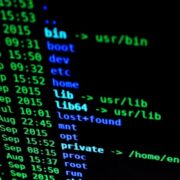In principle, any economic activity falls within the scope of VAT. The person carrying out this activity is qualified as “liable”. But some activities are exempt from VAT.
Table of Contents
Taxable transactions
The scope of VAT is defined by two definitions:
Sales of goods and services provided for consideration (i.e. against payment of a price) by a taxable person acting as such are subject to VAT.
A taxable person is a person who carries out an economic activity (production, trade or provision of services) independently (without any relationship of subordination) whatever his legal and fiscal status.
Consequently, are non-taxable persons who carry out their activity outside an economic circuit such as individuals and public administrations; or who exercise it in a dependent manner: employees, home workers, company directors and sales representatives? Their activities are therefore excluded from the scope of VAT.
Note: beneficiaries of the basic franchise are subject to VAT but are exempt from declaring and paying it. Thus, they cannot practice any deduction of VAT, nor show VAT on their invoices. Using the self employment tax calculator comes handy in this case now.
VAT-exempt transactions
The major drawback of an activity exempt from VAT lies in the fact that the company is excluded from the right to recovery of the VAT that it has itself incurred when purchasing goods or providing services. (With some exceptions). The law lists the exemptions in a restrictive manner. However, the following list is not exhaustive:
- Education and vocational training for some organizations
- Medical and paramedical professions
- Health facilities
- Medical transport
- Non-profit organizations
- Insurance and reinsurance operations
- Some furnished rentals
- Certain banking and financial transactions
- Games and betting
- Circles and gambling houses
- Sports meetings.
Although exempt, certain transactions give rise to the right to deduct. This concerns, in particular, intra-Community exports and deliveries as well as international transport of goods.
Exempt transactions with possibility of option for VAT
Natural or legal persons who carry out an activity exempt from VAT may be recognized, by an express provision of the law (articles 260 and following of the CGI), the possibility of voluntarily submitting to VAT, through an option provided for this purpose. The advantage for a company to choose is twofold:
- This allows it to recover the VAT that its suppliers charge it.
- It will be exempt from paying tax on salaries.
One example is the lessors of bare buildings for professional use. They have the option, after having exercised an option in this direction, to apply VAT on the rents of the bare premises which they rent out for the needs of the professional activity of the lessee (the tenant).





















Comments